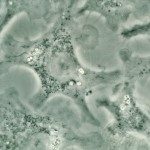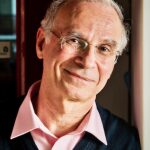Link to Pubmed [PMID] – 21628329
J. Leukoc. Biol. 2011 Sep;90(3):413-24
Progress in science is made with key discoveries, correct analyses, wrong statements, and disputes within the scientific community. Despite scientific controversies, Elie Metchnikoff has allowed the theory of phagocytes to triumph. Starting his career as a zoologist, Metchnikoff became a pathologist, beautifully defining the role of monocytes, macrophages, and neutrophils during inflammation and innate immunity. The discoveries of immune cells were made by other outstandings scientists, such as Paul Ehrlich, whose key contributions to humoral immunity led him to share the Nobel Prize with Metchnikoff. Ludwig Aschoff grouped certain cells under the term RES, according to their propensity for absorbing and storing vital stains. This classification was not always a source of accurate discoveries, and research on the exact function of RES cells led to some wanderings. This is illustrated by studies about the nature of the antibody-producing cells, which were first thought to belong to the RES, before being identified as plasmocytes and lymphocytes.

